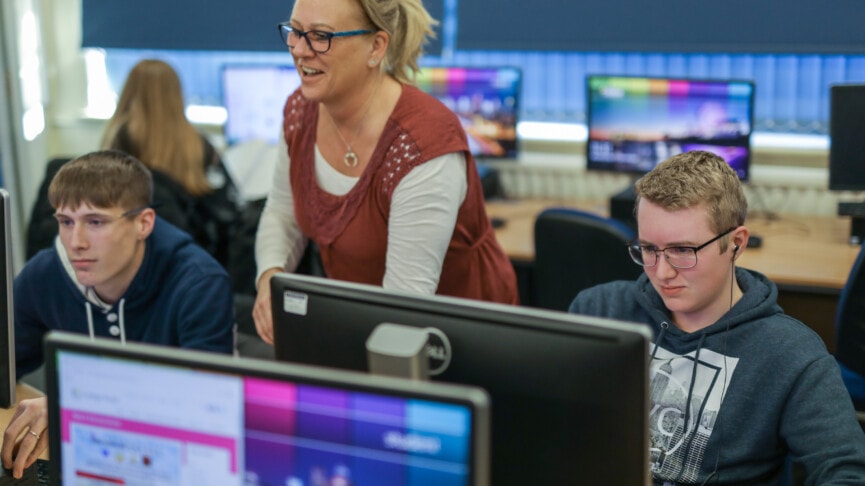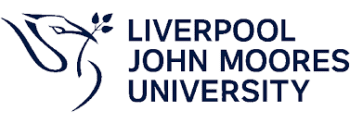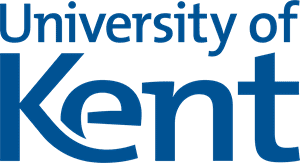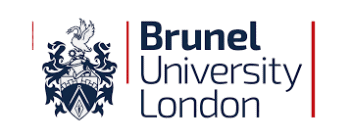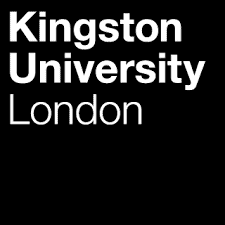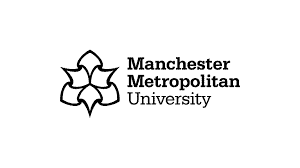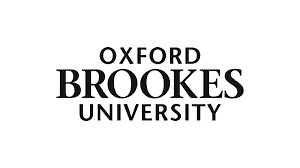Overview
Information Technology BTEC Level 3 National Extended Certificate, equivalent to one A Level
Information Technology BTEC is a practical course for students who wish to develop their expertise with IT and its uses.
An IT BTEC is a widely accepted pathway to university, as well as teaching you the expertise and skills for IT related roles. It develops your abilities to learn independently, to research actively and methodically, to plan and manage time, to organise files, and to be an active member of a working group. All these skills are valued by universities as well as by employers.
Entry Requirements
In addition to the College Entry Requirements, to qualify for this course you will also need to achieve a minimum of:
- Grade 4 in GCSE English Language
Course Details
This course focuses on four areas:
- Study of the role of Information Technology systems and the implications of their use in personal and professional situations. You will:
- Explore the relationship between the software and hardware tfor IT systems.
- Examine issues related to the use of IT systems and the impact that they have on organisations and individuals.
- Study of cyber security threats and vulnerabilities, the methods used to protect organisations against threats and managing security incidents. You will:
- Examine the many types of cyber security attacks, the vulnerabilities in networked systems and the techniques that can be used to defend an organisation’s networked systems.
- Investigate scenarios and explain appropriate protection measures for networked systems.
- Learn the forensic methods used to investigate cyber security incidents and analyse the suitability of those methods for a given scenario.
- Investigation of website development principles and practices. You will
- Learn to plan and design websites that meet client requirements, using industry standard development methodologies.
- Get hands on experience with HTML, CSS, and development tools to create responsive websites.
- Develop skills in implementing user interfaces and testing website functionality.
- Study of Relational Database principles and implementation. You will
- Learn database structure and data manipulation techniques.
- Design and create table relationships and develop queries to extract information.
- Apply these skills to design and develop a database solution that meet client requirements.
To find out more about this course, watch our IT FAQ video from Glenn Evans, Head of Computer Science and IT, as he answers some of the most frequently asked questions about this course.
Assessment
In Information Technology, two units are internally assessed through coursework and represent 33% of your total marks.
The remaining two units are assessed as written exams, under exam conditions, and represent 66% of the marks.
Subject Combinations
The course is useful and interesting in its own right as well as complementing a wide range of subjects such as Business BTEC, Business A Level, Fine Art, Drama, Media or 3D Design.
University Destinations
An Information Technology BTEC is an incredibly flexible course, with 67% of students going onto university or further education.
Here are some typical university destinations that our Information Technology BTEC students go on to.
Click on a destination to see some examples of courses they have taken;

Solent University
Typical courses: CGI and Visual Effects with Digital Arts Foundation Year; Deck Officer Cadetship

University of West London
Typical courses: Cyber Security; Graphic Design (Visual Communications and Illustration)
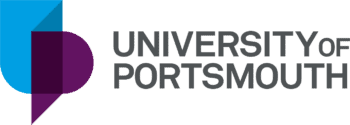
University of Portsmouth
Typical courses: Counter Terrorism, Intelligence and Cybercrime (Dual Degree)

University of Sussex
Typical courses: Business and Management Studies (with a professional placement year)
Careers
This course leads to an equivalent qualification of one A Level and is an excellent grounding to go onto further study in an IT-related subject, as well as providing expertise and skills for IT and businesses more broadly.
FAQs
How does BTEC Information Technology differ from Computer Science A Level?
Overall approach: An Information Technology BTEC focuses on the “user side” of computers and on understanding how to operate a range of software to get tasks completed, often in the context of a particular organisation or business. Computer Science A Level deals with the “behind the scenes” work of developing and implementing various sets of instructions to enable a computer to do a particular task.
Content of the course: Information Technology BTEC has a broad variety of content, which enables students to focus on computing interests and plans they have for next steps into further study, an apprenticeship, or employment. It works through units to understand user theory and how to produce documents, files, presentations, spreadsheets, databases etc to perform day to day tasks. Computer Science A Level is more narrowly focused on computer theory and programming, consisting of the fundamentals of programming, data structures, algorithms, and object-orientated programme design. You learn about the detail of the internal workings of a computer, right down to the basics of how all data is stored using binary, covering aspects of computer architecture, showing the specifics of the ‘fetch-execute’ cycle and exactly how data is accessed from main memory using assembly language instructions.
Assessment: In Information Technology BTEC, 66% of the marks go on a formal and controlled assessment under exam conditions, the other 33% of the marks are for coursework. In Computer Science A Level 80% of the marks go on two formal exams and 20% of the marks on a coursework project.
What extra support/enrichment activities are on offer?
Students have opportunities to take part in IT/ Computing related visits. Previous examples have included Kingston University Gaming Lab; Emirates Aviation; IT in the Airline Business and ‘behind the scenes’ at Thorpe Park.
Students are also encouraged to take up employment in IT environments outside college hours and to undertake work placements during the College’s Wider Skills Week at the end of their first year.

